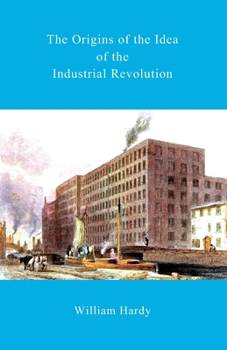The Origins of the Idea of the Industrial Revolution
Traditionally, the "Industrial Revolution" is seen as a sharp discontinuity in Britain's history, dating from circa 1760, and characterised by the meteoric rise of the cotton mills, the adoption of Watt's steam engine, and the emergence of a new class-based social order. It is a version of events that has been criticised, modified, rejected and revived by generations of historians. But where did this traditional account come from? How did it become...
Format:Paperback
Language:English
ISBN:150241595X
ISBN13:9781502415950
Release Date:December 2014
Publisher:Createspace Independent Publishing Platform
Length:220 Pages
Weight:0.57 lbs.
Dimensions:0.5" x 5.5" x 8.5"
Customer Reviews
0 rating





